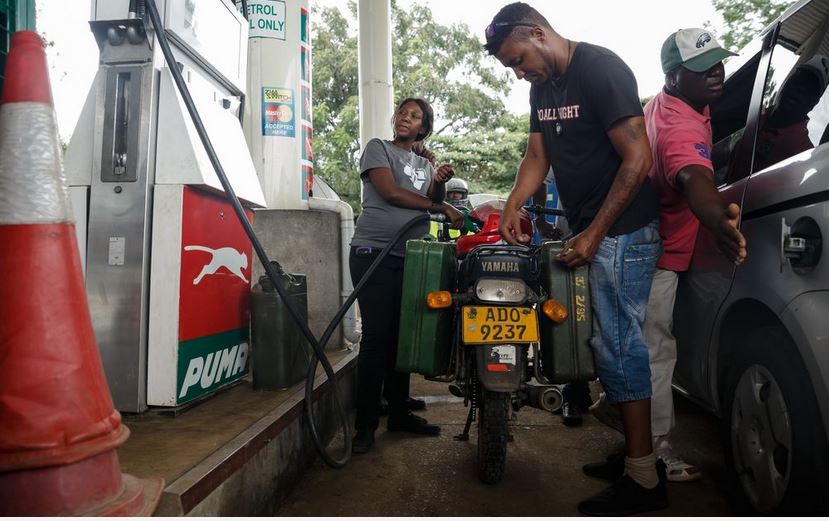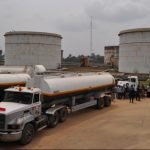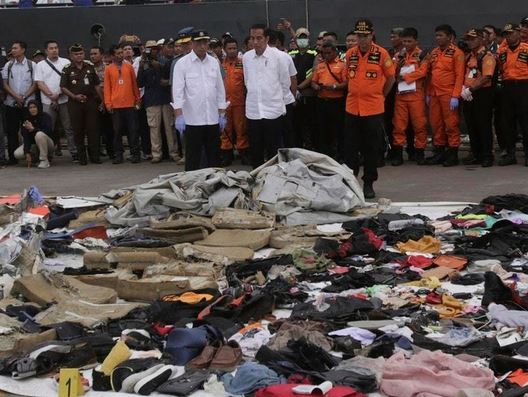Zimbabwe’s main labor-union confederation started a national strike after the government more than doubled fuel prices to the highest in the world.
The Zimbabwe Congress of Trade Unions, which represents most labor unions in the southern African nation, began the action two days after the state raised the cost of gasoline to $3.11 a liter from $1.34 and diesel to $3.21 a liter from $1.49. The gasoline price compares with a global average of $1.08 a liter with Hong Kong, at $2.04, being the highest, according to GlobalPetrolPrices.com.
The hike capped a week in a deepening currency crisis, with the head of the main industry body saying many companies will close this month due to a currency shortage.
The national strike comes as a foreign-exchange shortage has sparked scarcities of everything from fuel to bread, causing doctors to stay away from work and companies to cut or cease production because they can’t import raw materials.
The roots of the crisis lie in a 2009 decision to abolish the Zimbabwe dollar in favor of the use of other currencies, primarily the U.S. dollar.
Zimbabwe doesn’t have enough foreign exchange to fund imports and pay workers, many of whom are refusing to accept salaries in electronic money or so-called bond notes because they trade at a discount to hard currency on the black market.
“Most of the companies do not have raw materials that go beyond January as most of our suppliers cut us out of stock, and it is only payment in foreign exchange that will unlock supply lines,” said Sifelani Jabangwe, the president of the Confederation of Zimbabwe Industries.
Already the country’s biggest company by market value, brewer Delta Corp. has said it would only accept payment in foreign currency before the central bank promised to find it sufficient foreign exchange. Fast-food company Simbisa Brands Ltd. said last month it would give customers a discount if they paid in hard currency.
Burning House
Industries in Zimbabwe have been denied access to foreign currency since October and companies have been forced to source dollars illegally on the black market, the CZI said in a letter to government. The allocation of foreign exchange isn’t transparent and the government needs to permit interbank trading of foreign exchange, the confederation said.
“Industry is facing imminent collapse,” the CZI said. “The house is burning.”
The government plans to reintroduce its own currency within 12 months, the state-controlled Herald newspaper reported on Saturday, citing Finance Minister Mthuli Ncube. The CZI said the country need its own currency and wants a clear time frame as to when this will happen.
While the crisis deepens, President Emmerson Mnangagwa is due to be away for two weeks with a trip spanning Azerbaijan to the World Economic Forum meeting in Davos, Switzerland.














